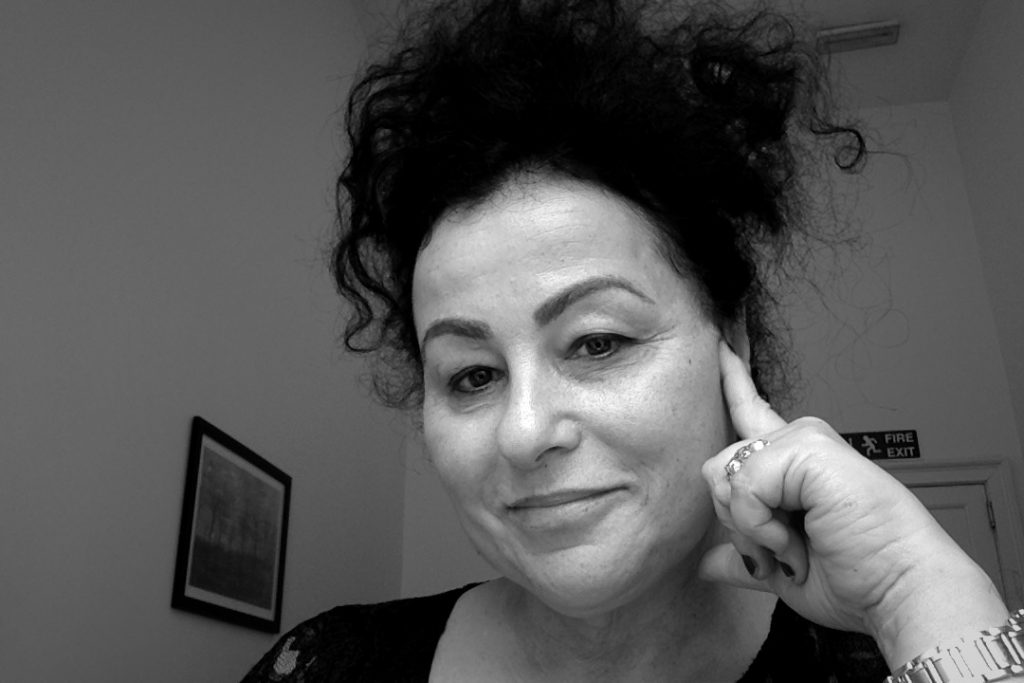Maya Laster-Wallfisch’s mother survived the Holocaust. It affects the family over generations
First published in Der Freitag, Number 16, April 15, 2020

The Holocaust was not ended with the liberation of the concentration camps. It lives on in all those who were in contact with it,” writes Maya Jacobs, née Lasker-Wallfisch, in her debut. The 62-year-old tells very personally how the persecution and murder of her family affected her. Her mother Anita Lasker-Wallfisch survived Auschwitz because she “was allowed” to play the cello in the orchestra there – for the forced laborers and those doomed to die on their way to the gas chambers, day after day. The cellist was also able to save her older sister Renate. The teenagers overcame typhus and in 1944 were transported to Bergen-Belsen, where they were liberated. Anita was 19 then and had been an orphan for three years: The Nazis had murdered her parents.
Maya knew almost nothing about that for a long time. Only 40 years after the war could her mother break her silence. She gave her two children her memories for Christmas: “My story”. By then, Maya had long become a sounding board for her mother’s traumas. She had unconsciously taken over her fears from back then, carrying her deeply buried grief, the feelings of abandonment and guilt feelings for having survived instead of her parents. Her mother’s story dominated her feelings. Until adulthood, she introduced herself as “the daughter of the cellist of Birkenau” without realizing that she was still far from understanding who she was.
“Don’t make a fuss,” her mother often said when Maya wasn’t feeling well. In view of what had happened to Anita in the concentration camp, the worries of her unstable child were meaningless to her. An entire generation grew up with this sentence. Parents were often emotionally incapable of reacting appropriately to their children’s everyday problems. Introverted, hard on themselves and others: Self-discipline and efficiency formed the shell that protected them from their emotions. They kept a steely silence about what they had suffered, seen, tolerated or committed. The Nazi perpetrators wanted to protect themselves from punishment, by-standers, narcissistically offended, kept silent in the face of the collapse of their failed Nazi ideology, the more insightful out of shame and guilt. Most Europeans were traumatized by the war, whether they were guilty or innocent. The survivors, on the other hand, could not with all the will in the world articulate their traumas. Memories from the death machine would have revived their nightmare. Long after the war, few people were willing to hear stories of such unimaginable suffering. Silence became the norm, unvarnished narratives the taboo.
Traumatic experiences, psychology knows, are passed on to the next generation if they are not processed. Epigenetics also knows that traumas caused by chemical markers can change hereditary genes. These forms of passing on partly explain why many from the war generation, whether on the perpetrator or victim side, often seemed unshakable while children or grandchildren collapsed under the burden of the past. The descendants often suffer from depression and disorientation without knowing the causes, because the past was radically split off from the present at home.
In her book the author repairs the torn threat from the time before the Nazi terror. She writes fictional letters to her murdered grandparents in Breslau. In them, she recalls their lives as assimilated Jews, who considered themselves to be much more German than Jewish. She describes how their three daughters survived and the impressive strength with which they mastered their lives: Anita was co-founder of the English Chamber Orchestra in London, Renate became a journalist and moved to France with her later husband, the publicist Klaus Harpprecht. Marianne, the oldest, emigrated to Palestine, where she helped build up Israel as a carpenter until she died, much too early, in childbirth.
Parallel to the dialogue with her grandparents, Maya talks about her own life. This is breathtaking and often disturbing: an eccentric girl who cannot adapt and disappoints the high expectations of her parents, who cannot find a stability in any of the constantly changing schools, who is permanently insecure and becomes a drug addict. A teenager who has just made it to secondary school, which the totally overburdened father avoids. Maya’s conspicuous behaviour is an expression of the desperate survival strategies of the child of a concentration camp survivor who wanted to overcome the trauma in “a normal atmosphere” at home, where “practically nothing was normal”. Then Maya as a young woman, who struggles through as an escort in clubs, as a croupier at roulette, as a hostess and cheque cheat with shady lovers, always close to self-destruction. Maya says she was the “wound of the family” in which the “unexplained past” was hidden. Until she begins the healing process in a rehab clinic with the help of her mother. Only as a mature woman and mother of a son does she develop her own identity, finds access to her own feelings and returns to the family circle. Today Lasker-Wallfisch is a psychotherapist and a recognized addiction counselor in London.
Anita Lasker-Wallfisch is one of the most articulate contemporary witnesses of the Shoah. In 2018, she addressed the Bundestag on Holocaust Memorial Day. In the meantime, mother and daughter appear together on stage, even in Germany, which Anita never wanted to enter again in the past. It is a process of a joint healing.
Maya’s courageous book has greatly enriched the understanding of transgenerational transmission, the perspective on several generations in historical contexts. It recalls the dangerous psychological and political legacies of the Nazi dictatorship and proves that the destructive spell of the past can be broken.
